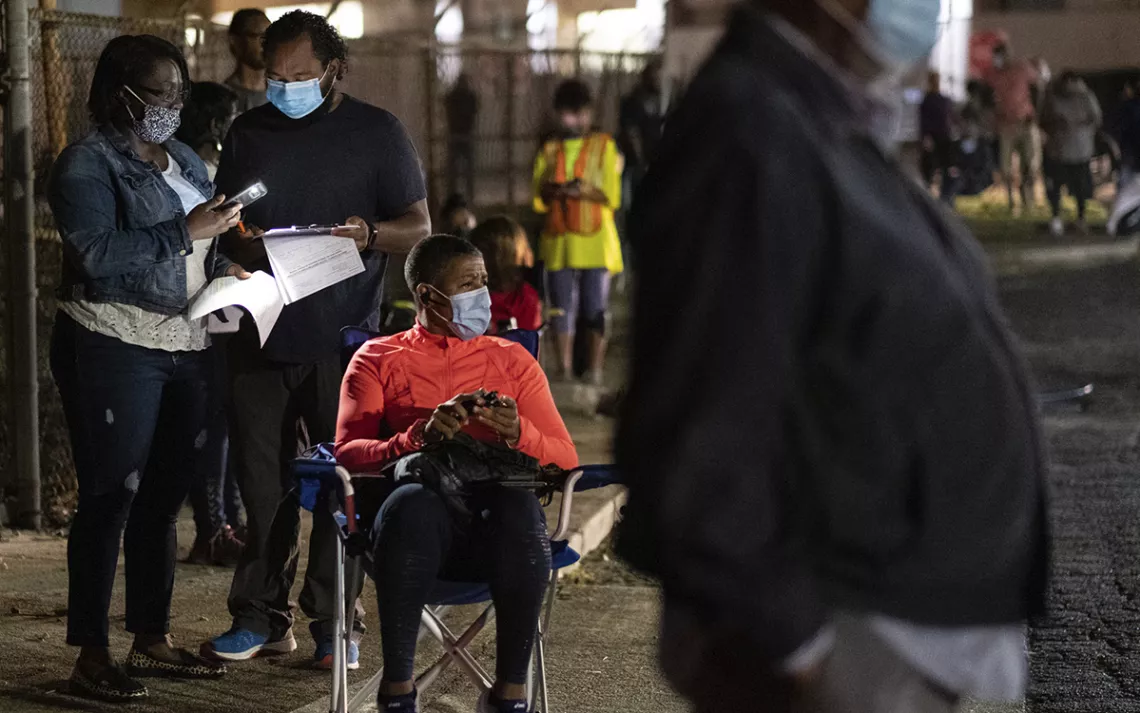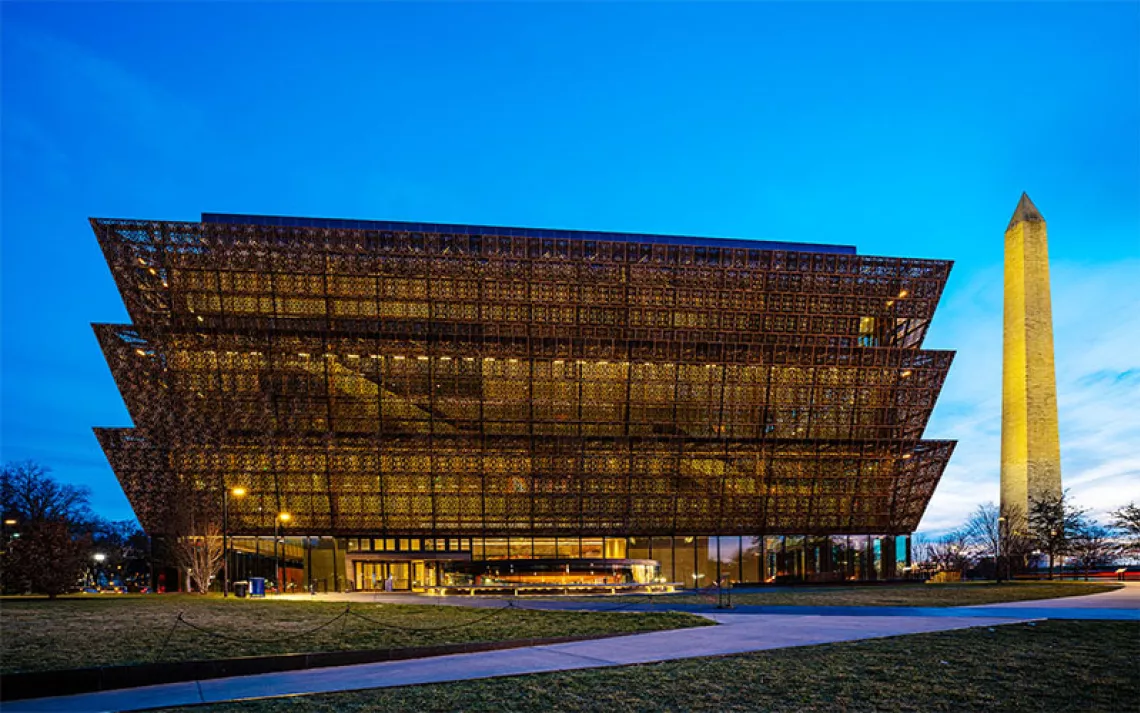We Can Guarantee the Right to Vote Once and for All
It requires acknowledging the obvious: Racism isn't over.

Denise and Bill Hasbune, of Stone Mountain, Georgia, fill out a preregistration form while waiting in line to vote at the DeKalb County elections office in Decatur in October 2020. | Photo by Ben Gray/Atlanta Journal-Constitution via AP Photo
In 2013, a 5–4 Supreme Court majority gutted the landmark Voting Rights Act. Chief Justice John Roberts wrote the majority opinion, saying that the blatant racism and voter suppression the law was meant to address were things of the past. “Our country has changed,” he wrote. The law he was overturning, which required states and counties with histories of discriminatory voting rules to clear election-law changes with the Justice Department, was “based on 40-year-old facts having no logical relationship to the present day,” Roberts argued in his decision. As far as the Supreme Court was concerned, racism was over.
That rosy assessment has not aged well. Instead, events since have supported William Faulkner’s dictum: “The past is never dead. It’s not even past.”
At the time of this writing, the Brennan Center for Justice had counted the introduction of 361 bills to limit voting rights in 47 states. The greatest numbers of such attempts are in Arizona, Georgia, and Texas—all states whose long histories of trying to rig election laws used to mean they were required to get “preclearance” by the Department of Justice.
Only weeks after Georgia voted for two Democratic senators in the January runoff election (giving President Joe Biden an opportunity to enact his environmental agenda), Governor Brian Kemp signed a suite of bills to try to ensure that nothing like that would happen again. An early version that would have outlawed Sunday voting—a blow to the powerful Souls to the Polls tradition of Black churches—was scratched after a major public outcry, but the provisions that remain make absentee voting harder, restrict access to early voting in Democratic strongholds, and give the Republican-controlled legislature vast sway over election rules. One gratuitously cruel provision criminalizes giving food or water to voters waiting in the long lines guaranteed by Georgia’s inadequate polls in urban precincts.
“What Georgia’s doing,” says Sylvia Albert, director of voting and elections at the nonpartisan clean-elections group Common Cause, “is looking for a way to thread the needle of suppressing the votes of Black and brown voters while still enabling white voters to easily vote.”
The two elections that prompted Georgia’s voter-restriction measure—in November and January—featured record turnout. “Georgia’s voting system has never been more secure or trustworthy,” Secretary of State Brad Raffensperger declared at the time, thereby incurring the wrath of losing candidate Donald Trump, who had vainly urged him to overturn the election results. Kemp, too, acknowledged the integrity of the election but found himself threading his own needle to get right with his state’s many Trump-supporting white voters. In addition to the historical racism at play, Georgia’s new voting restrictions were built on Trump’s baseless assertion that the presidential election had been stolen.
“Our [voting] options are more limited because some people in government didn’t like the turnout and didn’t like the results,” says Tania Robinson, a volunteer activist with the Sierra Club’s Georgia Chapter. “I don’t think that’s very fair. It shouldn’t be the officials selecting the voters. It should be the voters selecting the officials.”
Robinson’s feelings turn out to be widely shared. Outrage against voter-suppression efforts in Georgia and elsewhere has blown up around the nation. Under massive public pressure, Georgia-based corporations like Coca-Cola and Delta spoke out against the laws, after which activists urged them to do more and Republicans threatened boycotts. Senate Minority Leader Mitch McConnell warned corporations to “stay out of politics” (while making an exception for political contributions). Major League Baseball moved the All-Star Game from Atlanta to Denver, drawing a threat from a Republican lawmaker to revoke the league’s antitrust protection. In perhaps the unkindest cut of all, Trump himself blasted Kemp for signing a “watered-down” version of the law.
The spring attacks on voting rights nicely teed up what Albert calls a “once-in-a-generation voting-rights package” making its way through the Democrat-controlled Congress. The For the People Act would set federal standards for voter registration and mail-in voting, get rid of the gerrymandering of congressional districts, and force “dark money” donors out into the open. Its companion piece, the John Lewis Voting Rights Act, would restore and strengthen the act that the Roberts court gutted in 2013. “It says that in areas with a history of discrimination, if you make any changes to your voting laws, they have to be approved by the Department of Justice,” Albert says. Discriminating states would once again need federal preclearance before changing their voting laws.
Robinson has been very active in Georgia politics and finally thought that things were beginning to change. “We can’t afford to roll back the advances that we’ve made,” Robinson says. “Setting us back is just unconscionable.”
This article appeared in the Summer quarterly with the headline "Ballot Blocked."
 The Magazine of The Sierra Club
The Magazine of The Sierra Club



